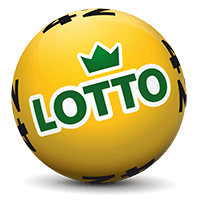
In an era where philanthropy meets entertainment, charitable lotteries have emerged as a popular and impactful way to support various causes while offering participants a chance to win exciting prizes. These lotteries blend the thrill of gaming with the satisfaction of contributing to a greater good, creating a win-win situation for both players and beneficiaries.
Charitable lotteries are not just about luck and chance; they are designed with a purpose. Unlike traditional lotteries, where the proceeds mainly benefit the organizers, charitable lotteries direct a significant portion of the revenue to support specific causes or charitable organizations. This unique approach transforms the act of playing into an opportunity to make a positive difference in the community.
As the appeal of charitable lotteries grows, so does the need for transparency and trust. Players are increasingly looking for assurance that their contributions are being used effectively and that the causes they support are genuinely benefiting from their participation. By addressing these concerns and maintaining a clear focus on the greater good, charitable lotteries continue to attract a dedicated following, proving that gaming and philanthropy can go hand in hand.
The Impact of Charitable Lotteries on Non-Profit Organizations
Charitable lotteries have emerged as a powerful tool for non-profit organizations seeking to enhance their fundraising efforts. By leveraging the excitement of a lottery draw, these organizations can attract a broader audience and generate substantial financial support for their causes. The impact of charitable lotteries extends beyond mere fundraising; it encompasses various facets that significantly benefit non-profits.
One of the primary advantages of charitable lotteries is their ability to diversify revenue streams. Traditional fundraising methods, such as donations and grants, are often limited in scope and can be unpredictable. Charitable lotteries offer a more stable and engaging alternative, enabling organizations to plan and execute larger-scale projects.
Benefits for Non-Profit Organizations
- Increased Visibility: Charitable lotteries help raise awareness about the organization and its mission. The publicity surrounding the lottery can attract new supporters and increase the organization’s profile in the community.
- Enhanced Donor Engagement: By participating in a lottery, donors feel a greater sense of involvement and contribution to the cause. The excitement of potentially winning a prize can lead to higher engagement and repeat participation.
- Additional Revenue: The proceeds from ticket sales can provide a significant boost to the organization’s funding. This additional revenue can be allocated to specific programs, services, or operational needs.
- Community Building: Charitable lotteries often foster a sense of community and collective effort. They encourage people to come together for a common cause, strengthening the organization’s connection with its supporters.
However, it is important for non-profits to carefully manage and oversee their lottery operations. Transparency and ethical practices are crucial to maintaining trust and ensuring the success of the initiative. Overall, when executed effectively, charitable lotteries can be a highly beneficial tool for non-profit organizations, driving both financial support and community engagement.
How Charitable Lotteries Work: Rules, Regulations, and Participation
Charitable lotteries are a unique way to combine the excitement of gaming with the spirit of giving. These lotteries operate on the principle of raising funds for charitable causes while offering participants the chance to win valuable prizes. Understanding how these lotteries work can help you make informed decisions if you choose to participate.
At their core, charitable lotteries are governed by a set of rules and regulations designed to ensure fairness and transparency. These rules can vary depending on the jurisdiction, but there are common elements that generally apply. Here’s a breakdown of how they typically function:
Rules and Regulations
Charitable lotteries must adhere to strict regulations to operate legally. These rules are put in place to protect both the participants and the integrity of the lottery. Some of the key regulations include:
- Licensing: Organizers usually need to obtain a license from a regulatory authority to conduct a charitable lottery. This ensures that the lottery meets legal standards.
- Transparency: The rules of the lottery, including how the funds are allocated and the odds of winning, must be clearly stated and accessible to all participants.
- Prize Allocation: A significant portion of the proceeds from ticket sales must go towards the charitable cause. The exact percentage can vary, but it is typically regulated to ensure a substantial donation.
- Drawing Procedures: The process of drawing winners must be conducted fairly and transparently, often under the supervision of an independent body.
Participation
Participating in a charitable lottery is generally straightforward. Here’s a step-by-step guide:
- Purchase a Ticket: Tickets can usually be bought online or at authorized outlets. Each ticket represents a chance to win and contributes to the charitable cause.
- Understand the Rules: Before purchasing a ticket, review the rules and regulations to understand how the lottery works and how the proceeds will be used.
- Wait for the Draw: The lottery will have a scheduled draw date. Winners are selected based on the draw, and results are typically announced publicly.
- Claiming Prizes: If you’re a winner, follow the instructions provided to claim your prize. Ensure you meet all the necessary requirements and deadlines.
Charitable lotteries offer a fun way to support worthy causes while having a chance to win exciting prizes. By understanding the rules and regulations, you can participate responsibly and contribute to meaningful change.
Success Stories: Charitable Lotteries Making a Difference
Charitable lotteries have proven to be powerful tools for generating significant funds that contribute to various social causes. Their success lies not only in the funds raised but also in the impactful outcomes they facilitate. From healthcare advancements to educational opportunities, these lotteries demonstrate how gaming can serve a greater purpose. Here, we explore some inspiring examples of charitable lotteries that have made a remarkable difference in their communities.
One standout example is the Children’s Hospital Lottery, which has consistently supported hospitals with essential resources and cutting-edge medical equipment. Through the funds generated, many hospitals have been able to expand their services and provide better care for young patients. Similarly, the Educational Support Lottery has significantly boosted funding for scholarships and school programs, ensuring that many students receive the support they need to achieve their academic goals.
Notable Success Stories
- The National Cancer Research Lottery: This lottery has been instrumental in funding cancer research, leading to breakthroughs in treatment and early detection methods. The success of this lottery has resulted in numerous lives saved and improved quality of life for cancer patients.
- The Arts and Culture Lottery: By funding various cultural and artistic projects, this lottery has revitalized local communities, supported emerging artists, and preserved important cultural heritage. It has also provided grants for community arts programs, enriching cultural life and fostering creativity.
- The Disaster Relief Lottery: In the wake of natural disasters, this lottery has quickly mobilized resources to provide immediate relief and long-term recovery efforts. The funds have been used to rebuild homes, support displaced families, and restore essential services in affected areas.
These success stories illustrate the profound impact that charitable lotteries can have. By blending the excitement of gaming with a commitment to meaningful causes, they offer a unique opportunity for individuals to contribute to the greater good. As we continue to see more innovative and effective charitable lotteries emerge, their potential to drive positive change remains boundless.
